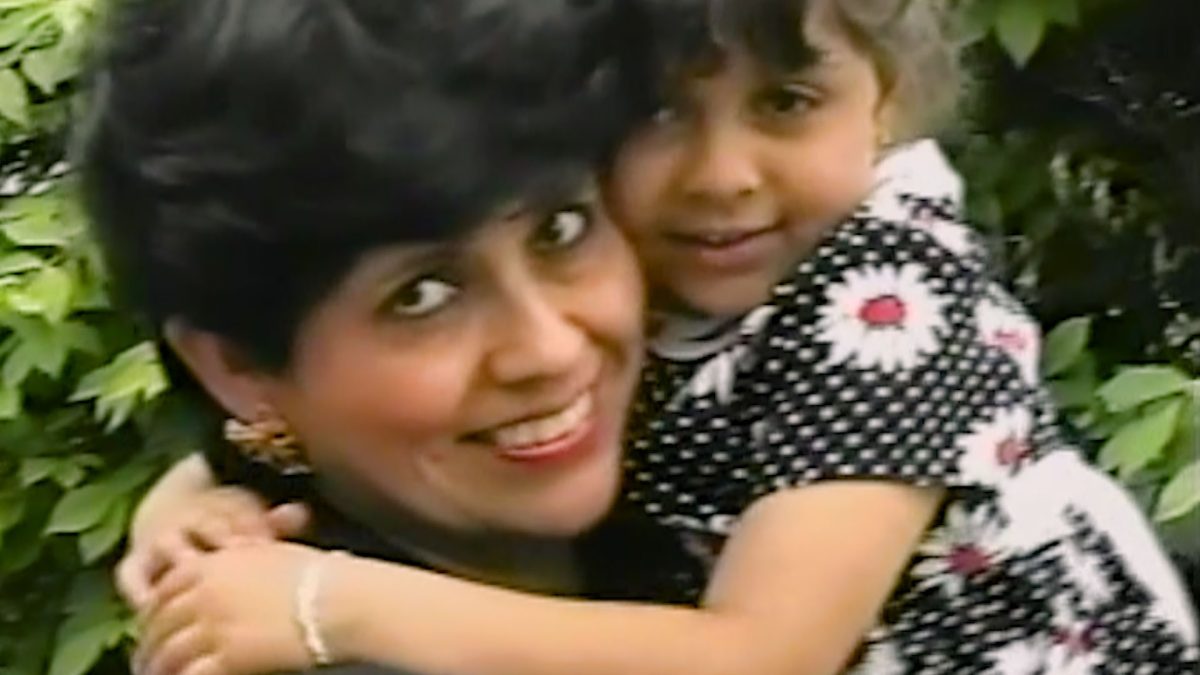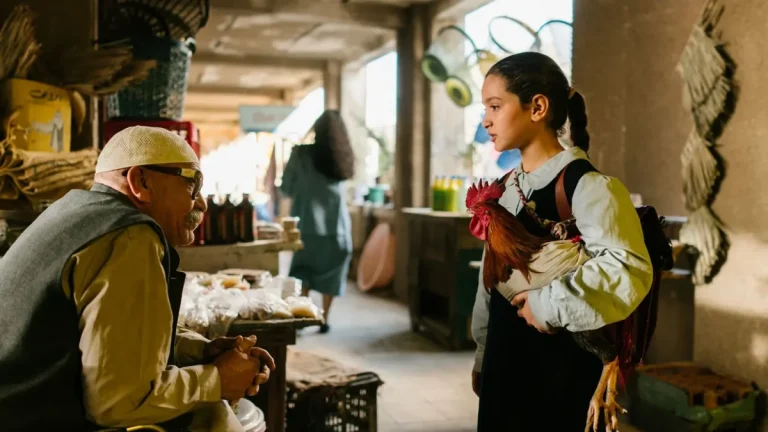Colette Ghunim’s “Traces of Home” (2025) unfolds like a painful healing session for her whole family. She co-wrote and directed this documentary, which offers an intimate account of her family’s tragic past and its correlation with the emotional pain she and her brother silently coped with since their childhood. While the film is about the parents’ resilience in the face of oppressive institutions, it’s also about the emotional residue their pain left in the form of intergenerational trauma. Colette explores that correlation through a mix of archival footage from their past, along with documentation from their recent visits to their homelands.
While an analytical documentary in that context, Colette’s film remains achingly personal because it’s also her attempt to find those emotional threads and to assess their impact on their existence. As a kid, she had a strained relationship with her mother, Iza, who held her to higher standards, which led to some of her profound fears.
On the other hand, her brother, Ramsey, didn’t have the kind of relationship with their father, Hosni, that he would have liked to. Their pain inadvertently affected the children. Colette documents her conversation with Ramsey about those agonizing memories, along with all their gaps in what they could remember and their distinctions, to illuminate the complicated nature of memories.
Whether or not we can remember visual details from our past, we remember how it all made us feel. So, the sentiment, whether felt or suppressed, can last longer and cut deeper. That’s the case with Colette’s story. She ties it back to her film’s central premise about Iza tracing his home in Mexico and Hosni tracing his in Palestine. They both fled these countries as kids, escaping a cycle of torture and abuse. Since then, throughout their lives in the US, they never returned home. Colette takes them back to these spaces in Mexico and Palestine, less out of usual curiosity about their pasts, more out of a desire to connect with them on a deeper level.
Colette’s film shifts back and forth between the past and the present, showing their childhood memories through the fuzzy videocam clips tinged with nostalgia, connected with the handheld footage from their recent visits to their homelands. Through those clips, she shows how Hosni documented his reality while working as a videographer, as she and Ramsey were growing up in the suburbs.

It became his way to hold on to a tangible record, since his childhood was snatched away from him due to the Nakba in the mid-20th century. He was forced to leave his home as a barely four-year-old, which left him with unclear fragments of visual or tangible memories. So, while watching his journey, it’s hard not to think of its parallels to the ongoing onslaught in Palestine, even after the apparent ceasefire, and the kind of searing memories children would have to live with.
On the surface, Colette and Ramsey had a far different childhood where they could enjoy birthday parties or school events like any other kid in the suburbs. Ramsey recalls how they didn’t grow up with a clear understanding of their ancestral history, but that didn’t save them from experiencing it through ripple effects, which went unnoticed. Iza and Hosni came from a generation that coped with emotions by burying them, yet emotional absence never meant those feelings ceased to exist. Instead, all the unspoken pain surfaced in subtler ways — through their habits, their long silences, and the weight of the expectations they placed on others.
As a result, Colette’s film feels like her passionate plea for her family to reflect on those memories as a unit, hoping the grieving process can lead them to a shared understanding. So, while she dives into specific parts of history pertaining to Iza and Hosni, her film isn’t a historical account as much as an emotional one. It’s about the crippling anxieties that mount up as they confront themselves or each other. Colette conveys that sense of underlying dread, which often occupies awkward or extended silences during their dialogue. Her film, however, conveys more through what’s left unsaid. So, it feels like we’re always a few steps away from truly understanding them as people.
Still, it doesn’t make the film the least bit insincere. Colette’s film may not be the most insightful documentary about the decades-long conflict between Palestine and Israel, but it leaves you with a pang that the Ghunims feel as they revisit that space that once was home for Hosni.
It also makes it difficult to shake off the residues of dread they experience as they visit Mexico, from where Iza escaped as a child with her mother to start a life away from her father’s domestic abuse. Therefore, while not a comprehensive account of any historical chapter, “Trace of Home” is a stirring and deeply felt account of Ghunims’ relationship with them, and a rallying cry to support those in search of a place that makes them feel at home.




![Sairat [2016]: Exploration of Inter-sectional Identity in Indian Cinema](https://79468c92.delivery.rocketcdn.me/wp-content/uploads/2019/11/sairat-2016-1-768x427.jpg)



![Hana-Bi [1997] Review – The Meditative Trip of a Beleaguered Detective](https://79468c92.delivery.rocketcdn.me/wp-content/uploads/2019/09/Hana-Bi-1997-768x432.jpg)